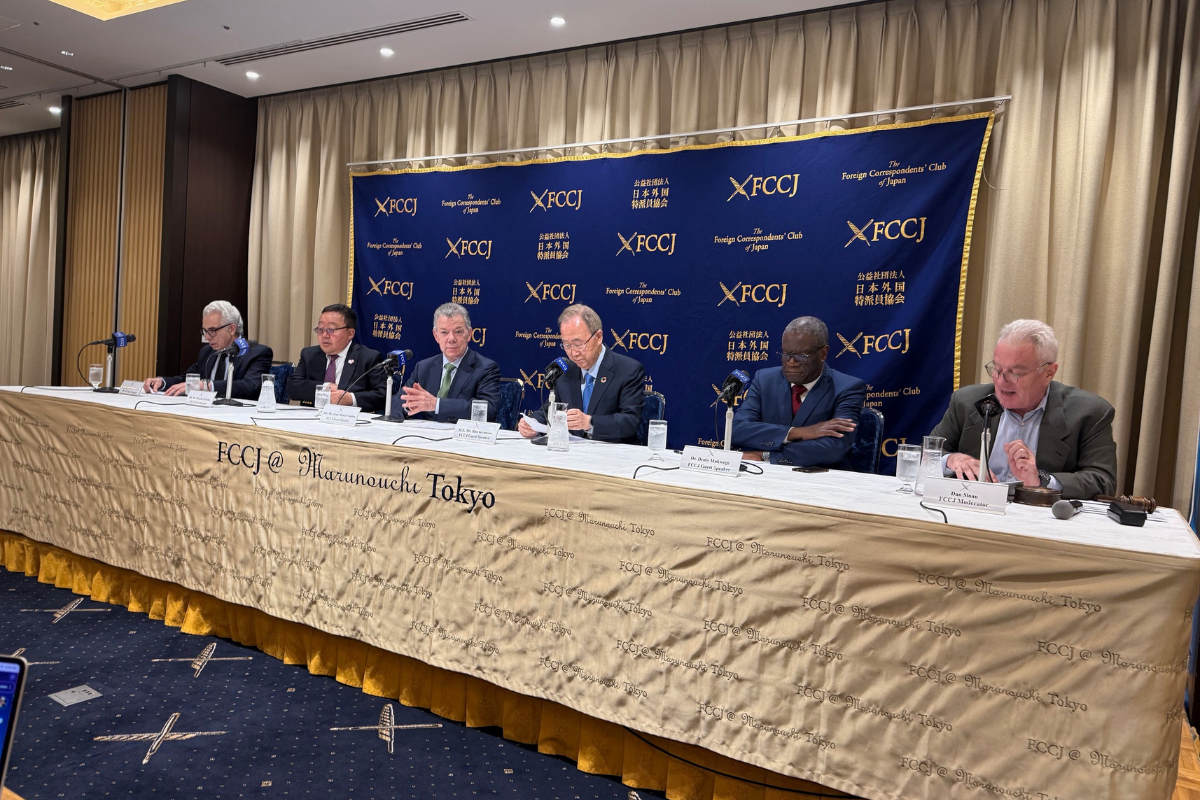Nobel Laureates, Former Presidents Call For Peace and End to Arms Race
Two Nobel Peace Prize laureates, three former presidents and the eighth United Nations chief visited Japan this week to speak on nuclear non-proliferation and disarmament, and to mark the 80th anniversary of World War II at two events in Tokyo on May 15.
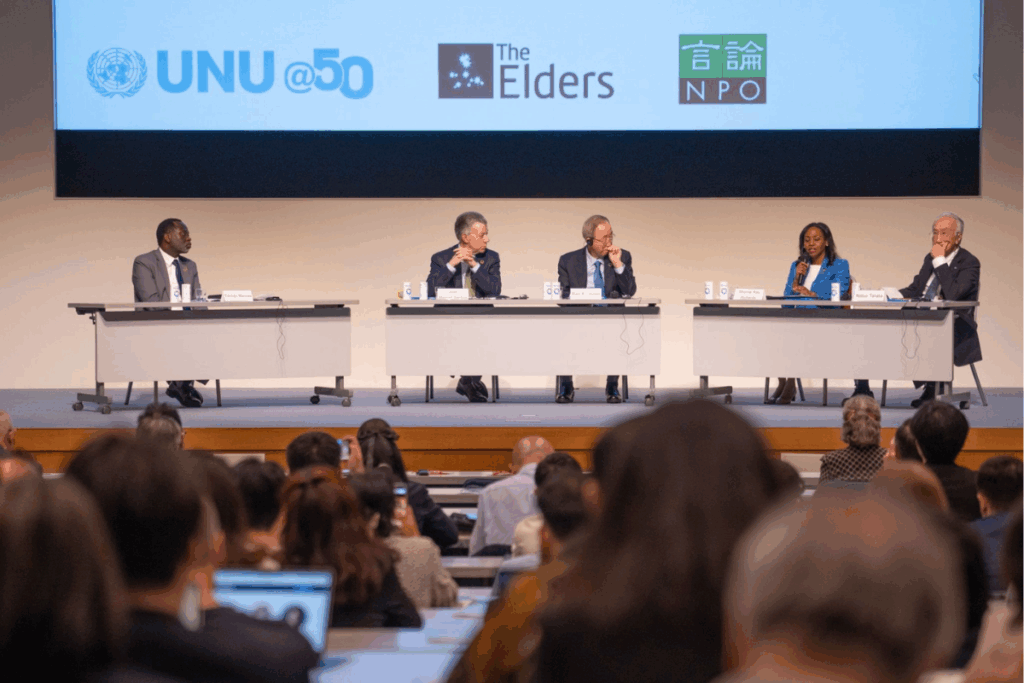
Five members of The Elders—an independent organization of six male and six female former heads of state founded in 2007 by the late South African President Nelson Mandela to work for peace, justice, human rights and sustainability—held a press conference at The Foreign Correspondents’ Club of Japan (FCCJ) on May 15.
The event featured The Elders Chair and former Colombian President Juan Manuel Santos; Deputy Chair and former UN Secretary-General Ban Ki-moon; women’s human rights advocate Dr. Denis Mukwege and former presidents of Mongolia and Mexico, Elbegdorj Tsakhia and Ernesto Zedillo, respectively. See video here: https://www.youtube.com/watch?v=96MzYmCOfdE
Two hours later, they joined former Japanese Prime Minister Fumio Kishida, the keynote speaker at a United Nations University (UNU) 50th Anniversary Symposium entitled, “80th Remembrance of Hiroshima and Nagasaki—The Imperative of Global Unity: How to Renew Multilateralism in a Fragmented World.”
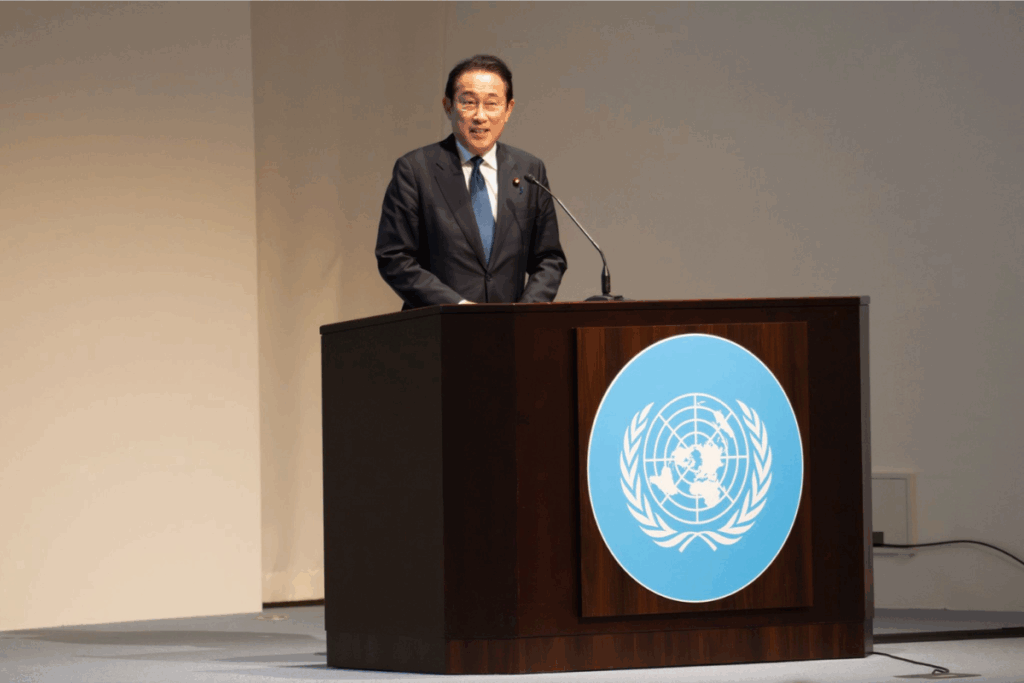
The UNU event was cohosted by Japanese think-tank Genron NPO and moderated by UNU Rector and Under-Secretary-General of the United Nations, Dr. Tshilidzi Marwala. Panelists were Santos, Ban, former Executive Director of the International Energy Agency Nobuo Tanaka and Jamaican Ambassador Shorna-Kay Richards, who is also chair of the UN Secretary-General’s Advisory Board on Disarmament Matters.
They discussed:
- What forms of solidarity are essential today for the future of humanity?
- What actions are required to reverse the tide of unilateralism and fragmentation in the international community?
- And what responsibilities and roles must be assumed by national governments, international organizations, NGOs and civil society?
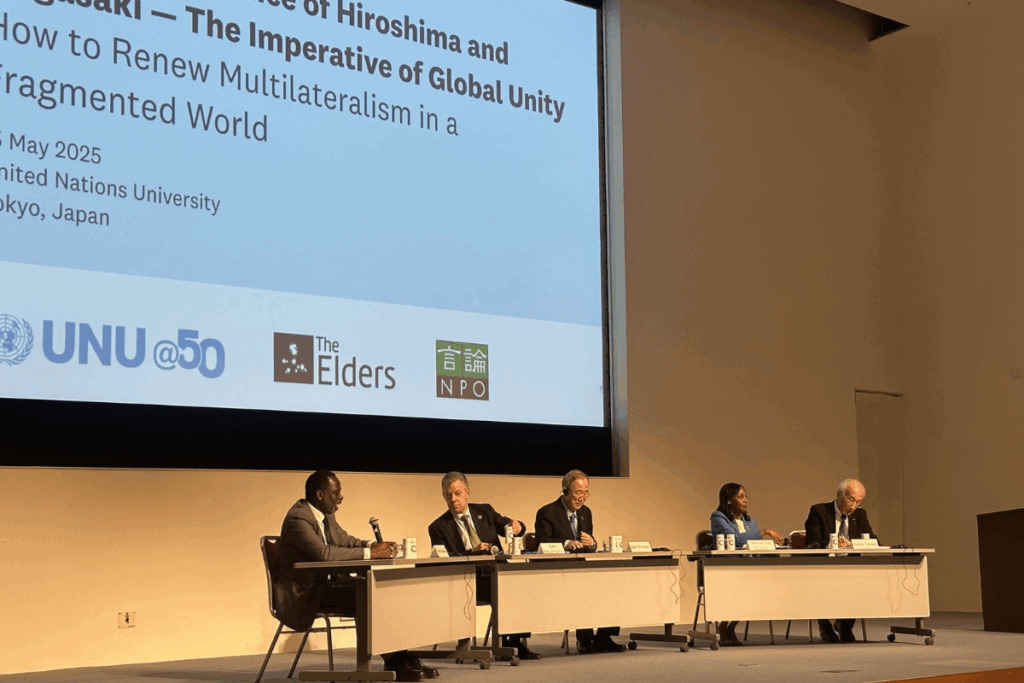
Richards said: “We must address the root causes of conflict to build and sustain trust, by putting people at the centre stage of multilateralism. Unilateralism cannot work.”
Criticising rising nationalism, pollution and viruses, she said there are no quick fixes or silver bullets. “All nations, regardless of their size, have a stake in the world.”
Slamming the so-called Global South crisis, she expressed her hopes for reform of the financial sector to halt debt poverty caused by bad loans, and to fight climate change. “I am one of the few women in my sector and I am passionate about reforming the [United Nations] Security Council to increase diversity and stop the veto powers held by the five permanent member nations.”
The capacity crowd loudly applauded after she said: “There is a global lack of representation and transparency.”
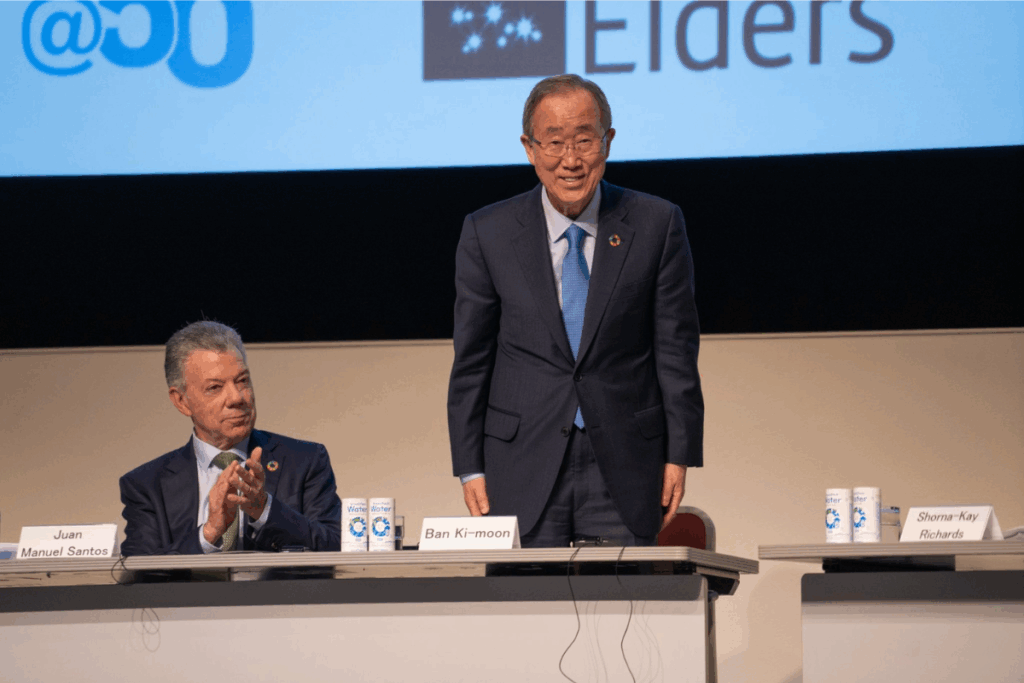
Zedillo said at the FCCJ that The Elders expect Japan to be more engaged in the abolition of nuclear arms. The Elders’ Nuclear Non-Proliferation and Disarmament Initiative calls on nuclear-armed states, particularly the five Permanent Members of the UN Security Council, to commit to a “minimization” agenda offering a realistic long-term path to the total elimination of nuclear weapons.
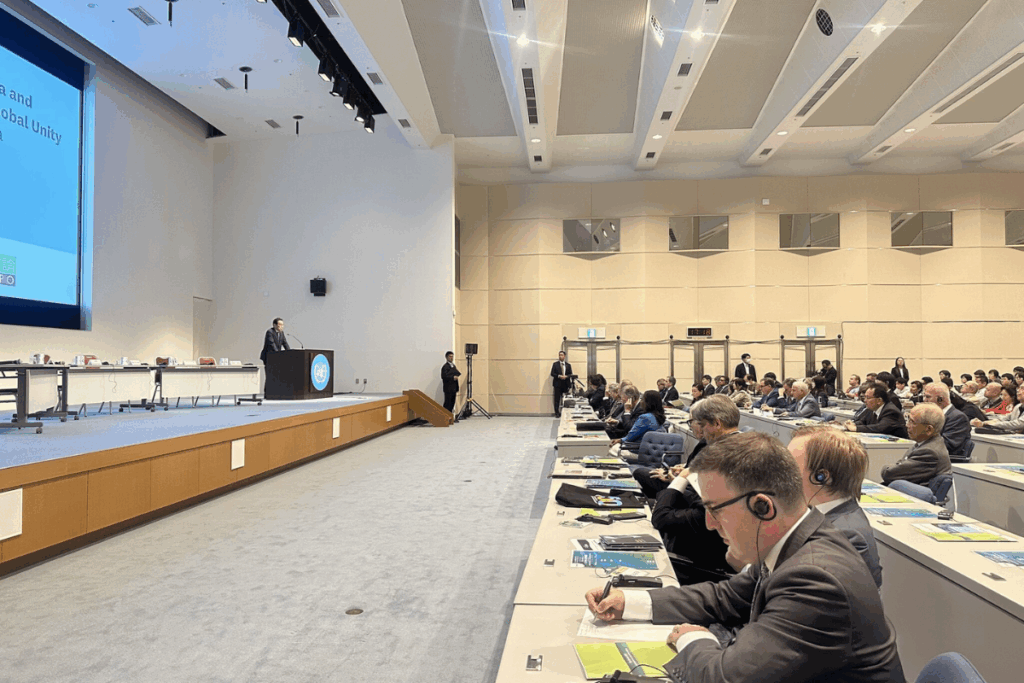
Former journalist Santos, who won the 2016 Nobel Peace Prize for helping end the 50-plus year civil war in Colombia, claimed the risk of conflict had been increasing “at an astonishing rate” for the past five to 15 years with some 140 conflicts globally.
“The respect for the rules of war has disappeared. The Elders founder Nelson Mandela was obsessed with dialogue to reach consensus through negotiation. We are very concerned with Gaza which is a tremendous tragedy,” he said.
Mukwege, who shared the 2018 Nobel Peace Prize with Nadia Murad for his work in combating sexual violence in the Democratic Republic of Congo and his dedication to the human rights of women, replied to a question about the declining number of survivors from the 1945 Hiroshima and Nagasaki nuclear bombings: “It is very important for nuclear bomb survivors to talk about their trauma to younger people to help them understand the horror of war.”
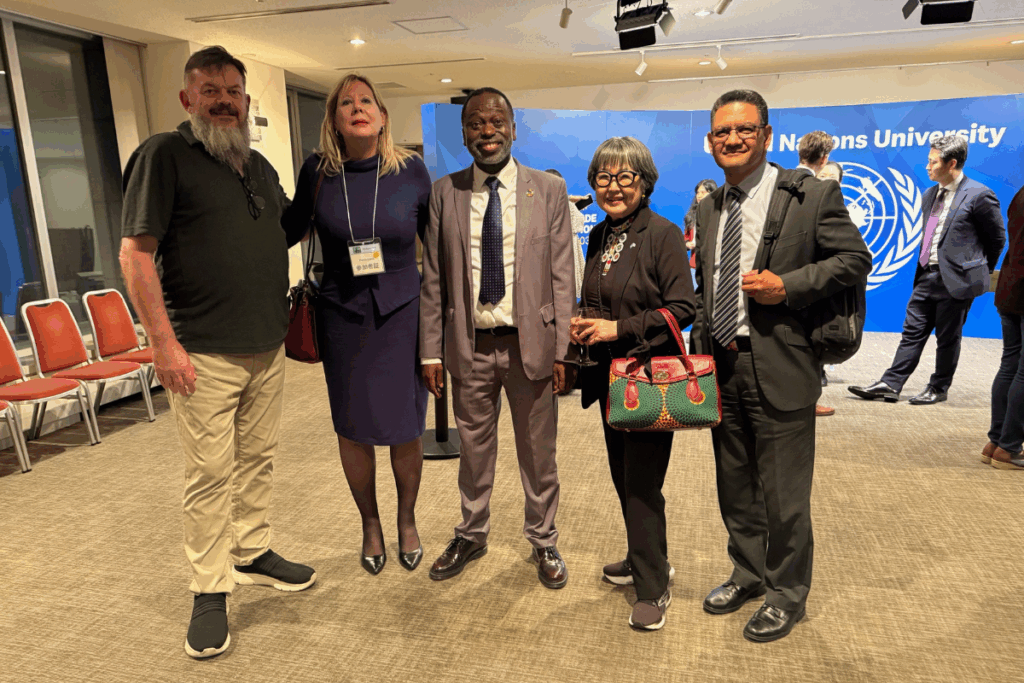
Ban was “deeply concerned by the recent threats from big powers” to use nuclear weapons.” He said he had told Kishida the day before that Russia may be supplying technology to North Korea to make missiles that could reach the US, in return for North Korean soldiers fighting for Russia in Ukraine. “I don’t have proof of this but I strongly suspect it.” He ended the UNU symposium by saying that world leaders need a global vision and young people should have a global perspective.
The final word at the FCCJ came from Tsakhia: “If civil society had more voice, they would come together. We must learn to listen more to civil societies and become more humanistic. Nuclear war can eliminate life in the whole world, so we must listen and act to avoid this.”
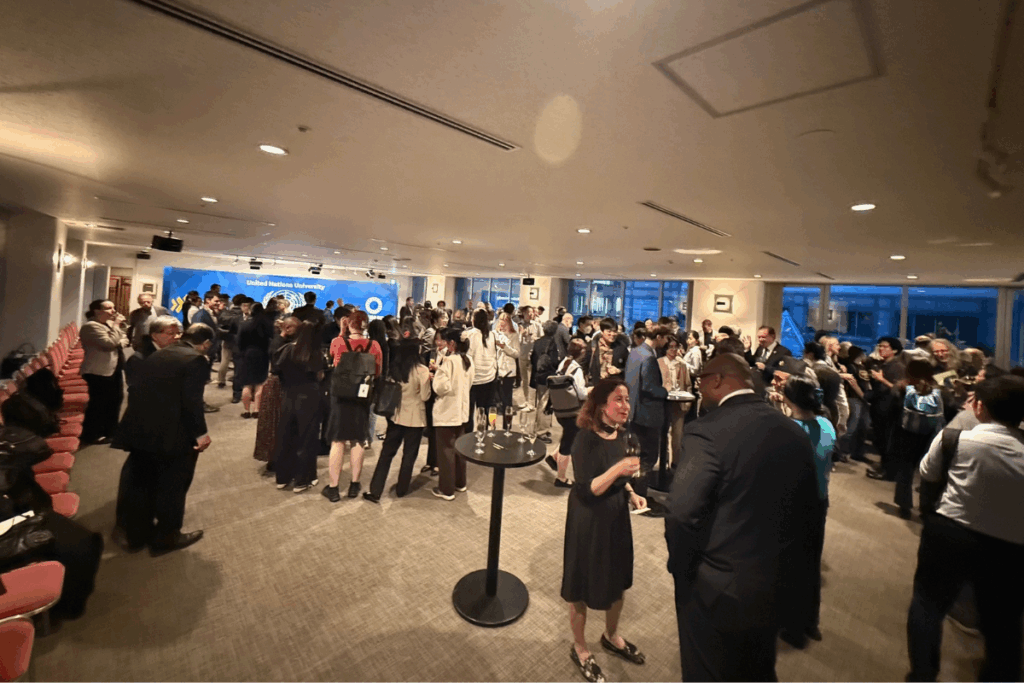
A UNU statement said: “Eighty years after the creation of the United Nations, the international system is in a profound crisis. Institutions that were painstakingly built over decades to uphold multilateralism are under threat as major powers blatantly violate the rule of law. International treaties and agreements are ignored and abandoned. Decision-making bodies designed to prevent and resolve armed conflicts are paralysed by geopolitical rivalry and a failure of leadership. At the same time, the world faces a series of existential threats of increasing severity that can only be addressed by collective action. The Doomsday Clock, currently set at 89 seconds to midnight, is an urgent warning of how the erosion of the rules-based international order exacerbates these threats and makes it harder to find sustainable solutions.
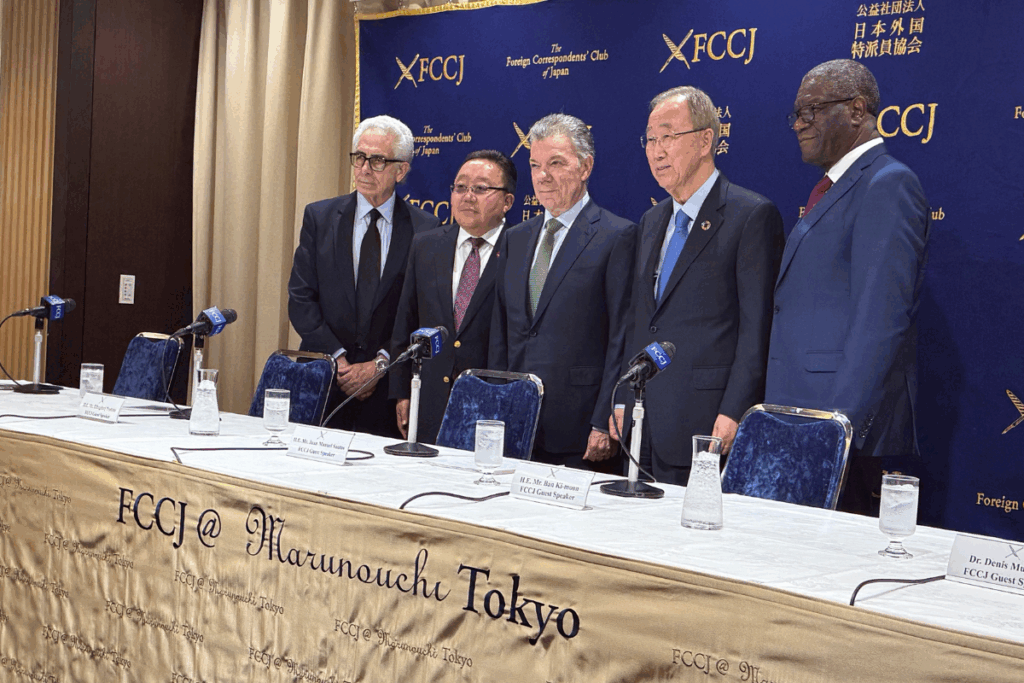
Leaders and citizens alike need to recommit to the values of multilateral cooperation to ensure a peaceful, equitable future for all. The Elders are gathering in Tokyo with Japanese leaders to discuss the roles that governments, international bodies, NGOs and civil society should play in the emerging new world order.”

